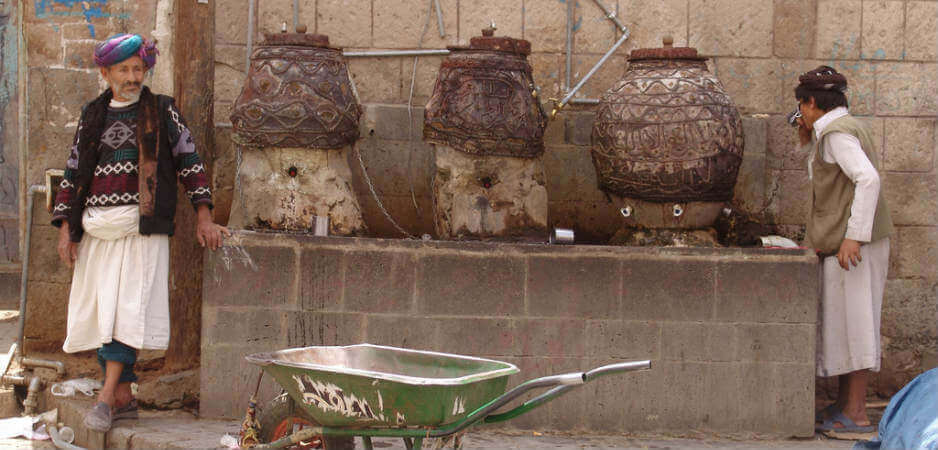Hunger and disease are adding to Yemen’s death toll, leaving the war-torn country in a state of deep humanitarian crisis.
Since the cholera outbreak in October 2016, compounded by hunger and malnourishment, Yemen has been suffering a severe health crisis. Cholera is a gastrointestinal infection that causes profuse diarrhea, dehydration and shock that can kill in a matter of hours. The disease is sweeping the country and, according to the World Health Organization, has caused at least 471 deaths, with the total number of suspected cases currently nearing 52,000.
Over two years of war have depleted medical supplies and hospital funds. A broken health system, lack of sanitation and clean water, and a large proportion of the population facing famine have created a perfect storm for the disease that preys on the weak and hungry.
Treatment for cholera is relatively cheap and includes intravenous fluids and basic nutritional support. But the delivery of aid has been halted by both the Saudi blockade and Houthi rebels on the ground. With some 18 million people in need of humanitarian assistance, children and immunosuppressed subjects are most vulnerable to cholera. With hundreds of new cases arriving to hospitals each day, many patients are left without treatment.
This year, the United Nations has implemented a $2 billion aid program for Yemen, but it has only been less than 20% funded. Despite being a relatively simple illness to treat, without proper assistance and funding Yemen’s cholera outbreak is destined to get worse.
The views expressed in this article are the author’s own and do not necessarily reflect Fair Observer’s editorial policy.
Photo Credit: Charles Roffey
Support Fair Observer
We rely on your support for our independence, diversity and quality.
For more than 10 years, Fair Observer has been free, fair and independent. No billionaire owns us, no advertisers control us. We are a reader-supported nonprofit. Unlike many other publications, we keep our content free for readers regardless of where they live or whether they can afford to pay. We have no paywalls and no ads.
In the post-truth era of fake news, echo chambers and filter bubbles, we publish a plurality of perspectives from around the world. Anyone can publish with us, but everyone goes through a rigorous editorial process. So, you get fact-checked, well-reasoned content instead of noise.
We publish 2,500+ voices from 90+ countries. We also conduct education and training programs
on subjects ranging from digital media and journalism to writing and critical thinking. This
doesn’t come cheap. Servers, editors, trainers and web developers cost
money.
Please consider supporting us on a regular basis as a recurring donor or a
sustaining member.
Will you support FO’s journalism?
We rely on your support for our independence, diversity and quality.






